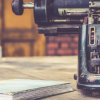
Published: July 15 2000
View the Original Newsletter: Iskra-62.pdf
About This Issue
Iskra No. 62 turns a sharp eye toward the responsibility of journalism — both in Croatia and abroad. Editor Valentina Krčmar reflects on the purpose of Hrvatska Iskra as an honest, people-driven publication in contrast to the sensationalism taking over Croatian media. The issue also covers the 4th Convention of the Croatian World Congress, the replacement of HMI Director Ante Beljo, community events across Ontario, and a fascinating feature on the decoding of the human genome, described as one of the greatest scientific breakthroughs of the century.
Editorial: The Duty to Tell the Truth
In her opening Motrišta column, Valentina Krčmar revisits the founding purpose of Iskra: to report truthfully, fairly, and respectfully to the Croatian-Canadian community. She laments how journalism in Croatia has become saturated with gossip and unfounded accusations, creating a culture of mistrust.
“We cannot build a nation on rumor. Truth demands courage — and responsibility.”
She introduces a statement from the Croatian Bishops’ Commission “Justitia et Pax”, which calls out the media for deepening social polarization. The Commission urges journalists to replace sensationalism with investigative ethics, emphasizing respect for human dignity and truth as the cornerstone of a healthy society.
“Croatian citizens have the right to truth — truth born of objective research and reporting.”
Krčmar adds her own plea: that every journalist — from television to print — remember the sacred weight of the written word.
National Focus: The Croatian World Congress in Zagreb
The 4th Convention of the Croatian World Congress (HSK), held in Zagreb, brings together delegates from across the diaspora. Re-elected president Šimun Šito Ćorić reaffirms that HSK will cooperate with Croatia’s new government but will not remain silent when Croatian interests are at stake.
Key points from the Congress:
-
HSK calls for a permanent state office to study and support Croats abroad.
-
It demands postal voting rights for diaspora Croats.
-
It criticizes the removal of officials and institutions dedicated to emigrant relations.
-
Delegates reject the idea that Croatians in Bosnia and Herzegovina are “diaspora,” calling them integral to the nation.
Ćorić also condemns attempts to “erase the legacy of President Franjo Tuđman” and to undermine Croatia’s statehood achievements of the 1990s.
Controversy: The Dismissal of Ante Beljo
A major theme of the issue is the dismissal of Ante Beljo, director of the Croatian Heritage Foundation (Hrvatska Matica Iseljenika – HMI).
Delegates from the HSK denounce the move as a politically motivated attack on the Croatian diaspora. They argue that Beljo’s replacement by Boris Maruna, a member of the SDP, reveals partisan bias and disrespect toward Croats abroad.
“If this is not a political dismissal, why was his successor a party member rejected by the diaspora?”
In contrast, Maruna and HMI board chair Jakša Kušan claim Beljo limited cooperation to HDZ supporters. But the Congress responds that HMI under Beljo was a model of professionalism and service to Croats worldwide.
Krčmar summarizes the community mood succinctly:
“Beljo’s dismissal feels like a blow to the heart of the emigrant community. But we will not turn away from the institutions that belong to us.”
Historical Feature: 900 Years of the Bašćanska Ploča
The issue honors the 900th anniversary of the Bašćanska Ploča, the oldest known monument written in Croatian glagolitic script.
The article, drawing from the research of leading Croatian scholars, describes the stone tablet as “the document and monument of our language, our king, our land.” It details its discovery, study, and symbolic meaning as a foundational text of Croatian identity.
“Every letter on the Bašćanska Ploča speaks of who we are — a people of word, faith, and continuity.”
Faith and Community: Father Gjuran’s Appeal
Returning to Toronto, Father Josip Gjuran issues an urgent call to help the Sisters of Mercy Hospital (Sestre Milosrdnice) in Zagreb purchase a Dantec Menuet Compact Plus medical device for urological diagnostics.
He opens a donation account at the Croatian Credit Union and reminds the community that “to serve the sick is to serve Christ himself.”
Despite economic hardship, Gjuran continues his mission of linking diaspora generosity with needs at home, proving that charity and compassion remain the strongest ties between Croatians in Canada and Croatia itself.
Science and Progress: The Human Genome Project
A striking article celebrates the decoding of the human genetic code — a feat that marks one of the greatest achievements in modern science. The piece explains how researchers successfully mapped the three billion base pairs of DNA, opening the door to medical breakthroughs that could transform the treatment of genetic diseases.
The article concludes with an ethical question that resonates with Iskra’s moral tone:
“We now hold the key to life itself — but will we use it to heal, or to harm?”
Closing Reflection
Valentina ends the issue with gratitude for the continued support of readers and a renewed promise to keep Iskra a voice of truth and integrity in the Croatian community. Her message is quiet but determined — a reminder that moral responsibility and compassion are inseparable from patriotism.
“To tell the truth is not an act of defiance. It is an act of love.”




